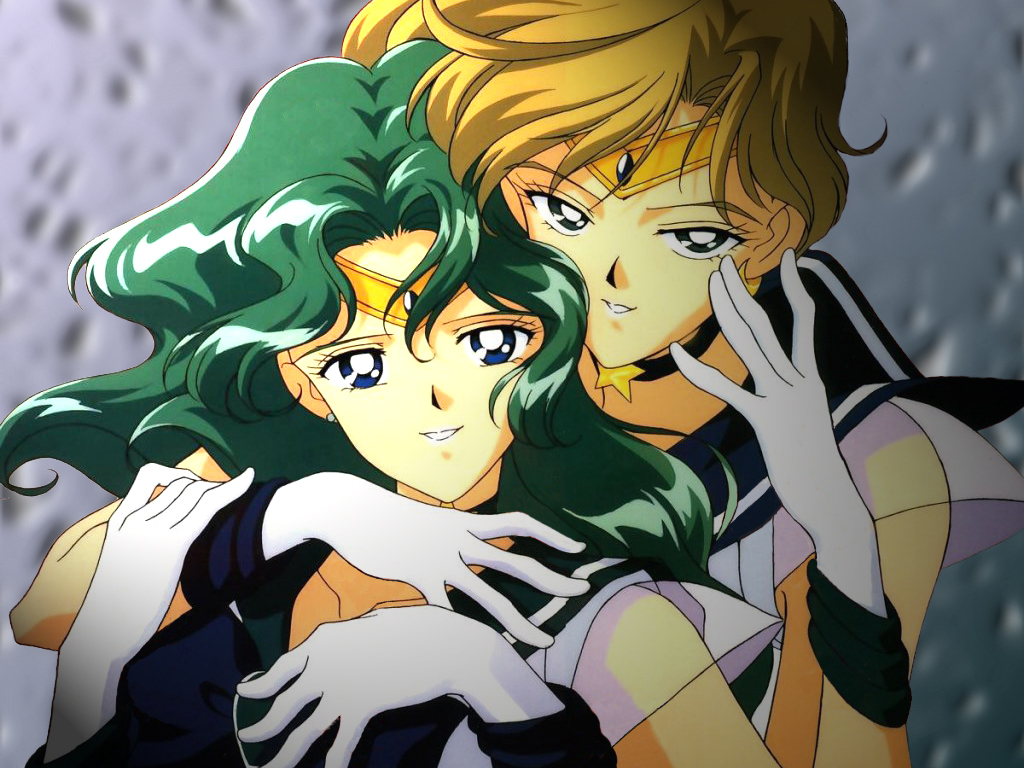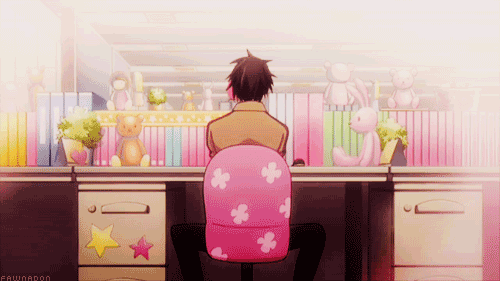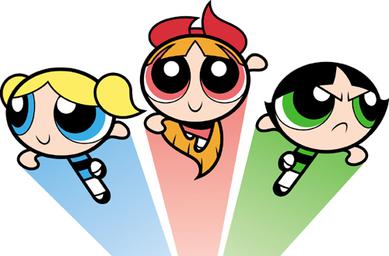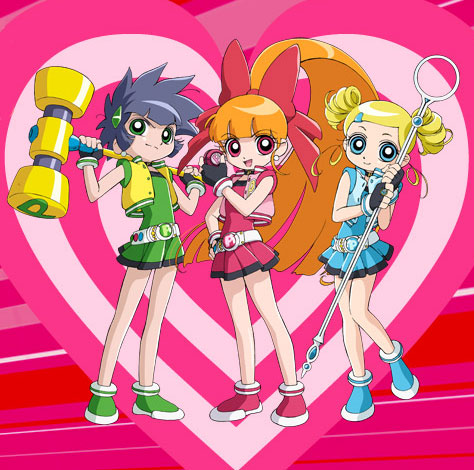The time has come to explore this side of Sailor Moon. This is the side of Sailor Moon that most fans are aware of but I wanted to bring some light to those who may not be as big of fan as Sailor Moon as I or others might be.
Ah yes the long awaited topic on the homosexual couple in the Sailor Moon series. Let me give you some back info here, so in “Sailor Moon S” we are introduced to some new characters Haruka Tenou and Michiru Kaio (Sailor Uranus and Sailor Neptune) who are genius high school students who excel in the actitivies they are passionate in and are ALWAYS together. These characters are known to the Sailor gang as just the most beautiful people they know.

Neptune and Uranus
When we see the characters first appearance out of fighting uniform, Haruka (blonde, short hair) is wearing a boys school uniform and refers to themselves with ‘he’ pronouns.The Sailor crew and the audience go wild for him! Then, it’s revealed that Haruka is actually biologically female and this completely shocks the crew but for how long? Literally a few minutes and then Haruka’s gender is pretty much never mentioned again. The unfortunate side here though is that even though Haruka prefers to wear mens clothing and refers to himself with male pronouns, when he transforms into a Sailor Soldier, he is put into the same uniform as the rest of the soldiers. I can’t imagine how uncomfortable he felt wearing that. ![]()
The relationship between Haruka and Michiru in the Japanese version only hints to the two’s intimate relationship with each other. We never see them kiss, but they profess quite a few times the type of love they feel for each other and even showing jealousies towards other women or men who flirt with them.
So, how did their relationship change when brought over to America?
LET’S MAKE THEM COUSINS INSTEAD!

*headdesk*
Dark blue states represents legal first cousin marriage
Well when you think about it, that makes sense to change a homosexual relationship into an incestial relationship because marriage by incest is legal in more states than marriage by same sex. Still though, a lot of young kids who were watching the American version scratched their head at this because if these two were cousins then they were REALLY, REALLY into each other and in my opinion, that made me MORE uncomfortable than the version I was watching from Japan.



